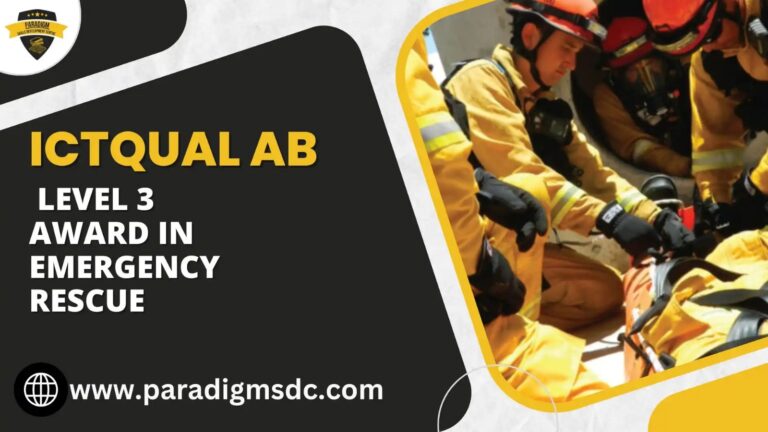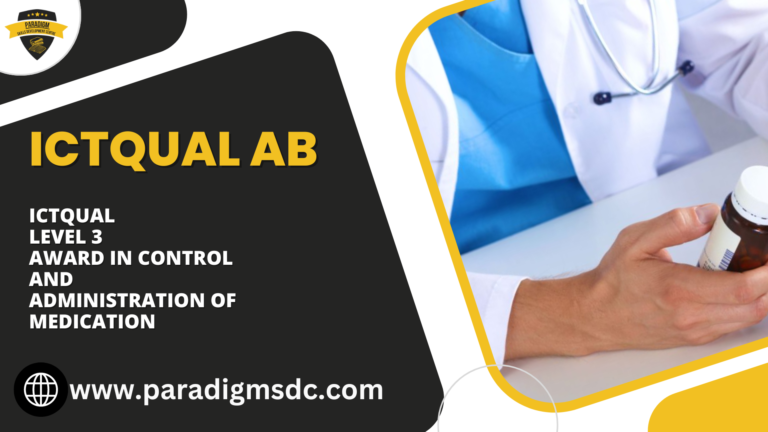In the realm of corporate sustainability and environmental responsibility, adhering to international standards is paramount. ISO 14001, an internationally recognized standard for Environmental Management Systems (EMS), ensures that organizations minimize their environmental footprint and comply with regulations. Among the crucial roles within this framework are Internal Auditors who ensure the efficacy and compliance of EMS within their organizations.
Course Introduction:
The ISO 14001 Environmental Management System Internal Auditor course is meticulously crafted to equip professionals with the knowledge and skills essential for auditing environmental management systems effectively. Developed in accordance with ISO standards, this course offers a structured approach to understanding environmental management principles, auditing techniques, and compliance requirements.
Course Benefits:
- Comprehensive Understanding: Participants gain in-depth insights into ISO 14001 standards, enabling them to interpret and implement them effectively within their organizations.
- Enhanced Auditing Skills: The course hones participants’ auditing skills, empowering them to conduct thorough assessments of environmental management systems.
- Regulatory Compliance: By mastering ISO 14001 standards, professionals ensure their organizations remain compliant with environmental regulations, mitigating legal risks.
- Organizational Improvement: Internal Auditors play a pivotal role in identifying areas for improvement within EMS, fostering continuous enhancement of environmental performance.
- Career Advancement: Completion of the course enhances participants’ credentials, opening doors to advanced career opportunities in environmental management and auditing.
Course Study Units:
The curriculum is divided into comprehensive study units, each focusing on specific aspects essential for mastering ISO 14001 Environmental Management System Internal Auditing. These units typically include:
- Introduction to ISO 14001: Understanding the fundamentals of ISO 14001 standards, its significance, and the principles underlying environmental management systems.
- Environmental Legislation and Compliance: Exploring relevant environmental legislation, regulations, and compliance requirements applicable to different industries and jurisdictions.
- Internal Auditing Techniques: Learning the methodologies, techniques, and best practices for conducting internal audits of EMS, including planning, execution, and reporting.
- Risk Assessment and Management: Understanding the concept of risk within the context of environmental management and strategies for assessing and mitigating environmental risks.
- Continuous Improvement: Exploring the principles of continuous improvement within EMS, including corrective and preventive actions, performance monitoring, and management review.
- Documentation and Record-Keeping: Understanding the importance of documentation and record-keeping in maintaining compliance and facilitating audit processes.
- Communication and Reporting: Developing effective communication skills for conveying audit findings, recommendations, and reports to stakeholders.
Learning Outcomes:
Upon completing the ISO 14001 Environmental Management System Internal Auditor course, participants can expect to achieve the following learning outcomes:
- Proficiency in ISO 14001 Standards: Participants gain a comprehensive understanding of ISO 14001 standards, including its requirements, clauses, and implementation guidelines.
- Auditing Competence: Mastery of auditing techniques enables participants to plan, conduct, and report on internal audits of EMS effectively.
- Regulatory Compliance: Participants develop a keen awareness of environmental regulations, ensuring organizational compliance and risk mitigation.
- Problem-Solving Skills: The course fosters critical thinking and problem-solving abilities, empowering participants to identify and address environmental management challenges.
- Communication Skills: Enhanced communication skills enable participants to articulate audit findings, recommendations, and reports clearly and concisely to stakeholders.
- Continuous Improvement: Participants learn to identify opportunities for improvement within EMS and contribute to the continuous enhancement of environmental performance within their organizations.
Who Is This Course For?
The ISO 14001 Environmental Management System Internal Auditor course is designed for a diverse range of professionals, including:
- Environmental Managers: Seeking to enhance their auditing skills and ensure compliance with ISO 14001 standards.
- Quality Assurance Professionals: Looking to expand their expertise into environmental management auditing.
- Corporate Sustainability Officers: Focused on improving environmental performance and ensuring sustainable business practices.
- Compliance Officers: Responsible for ensuring organizational compliance with environmental regulations and standards.
- Consultants and Advisors: Providing expertise and guidance to organizations on environmental management and compliance.
Future Progression for This Course:
Completion of the ISO 14001 Environmental Management System Internal Auditor course opens up a myriad of future progression opportunities for participants. These may include:
- Advanced Auditing Certifications: Pursuing advanced certifications such as Lead Auditor or Environmental Management System Auditor offers avenues for career advancement and specialization.
- Specialized Training: Participants can opt for specialized training in areas such as energy management, carbon footprint assessment, or sustainability reporting to further augment their skill set.
- Higher Education: Some participants may choose to pursue higher education, such as a Master’s degree in Environmental Management or Sustainability, to deepen their knowledge and expertise in the field.
- Consulting and Advisory Roles: Equipped with auditing expertise, participants may transition into consulting or advisory roles, offering their services to organizations seeking guidance on environmental management and compliance.
- Organizational Leadership: Mastery of ISO 14001 standards and environmental management principles positions participants for leadership roles within their organizations, such as Environmental Health and Safety (EHS) Managers or Sustainability Directors.
ISO 14001 Environmental Management System Internal Auditor course offers a comprehensive pathway for professionals seeking to enhance their auditing skills, ensure environmental compliance, and drive organizational sustainability. With its structured curriculum, rigorous training, and promising future prospects, this course stands as a cornerstone for individuals aspiring to make a positive impact on the environment and contribute to a sustainable future.







